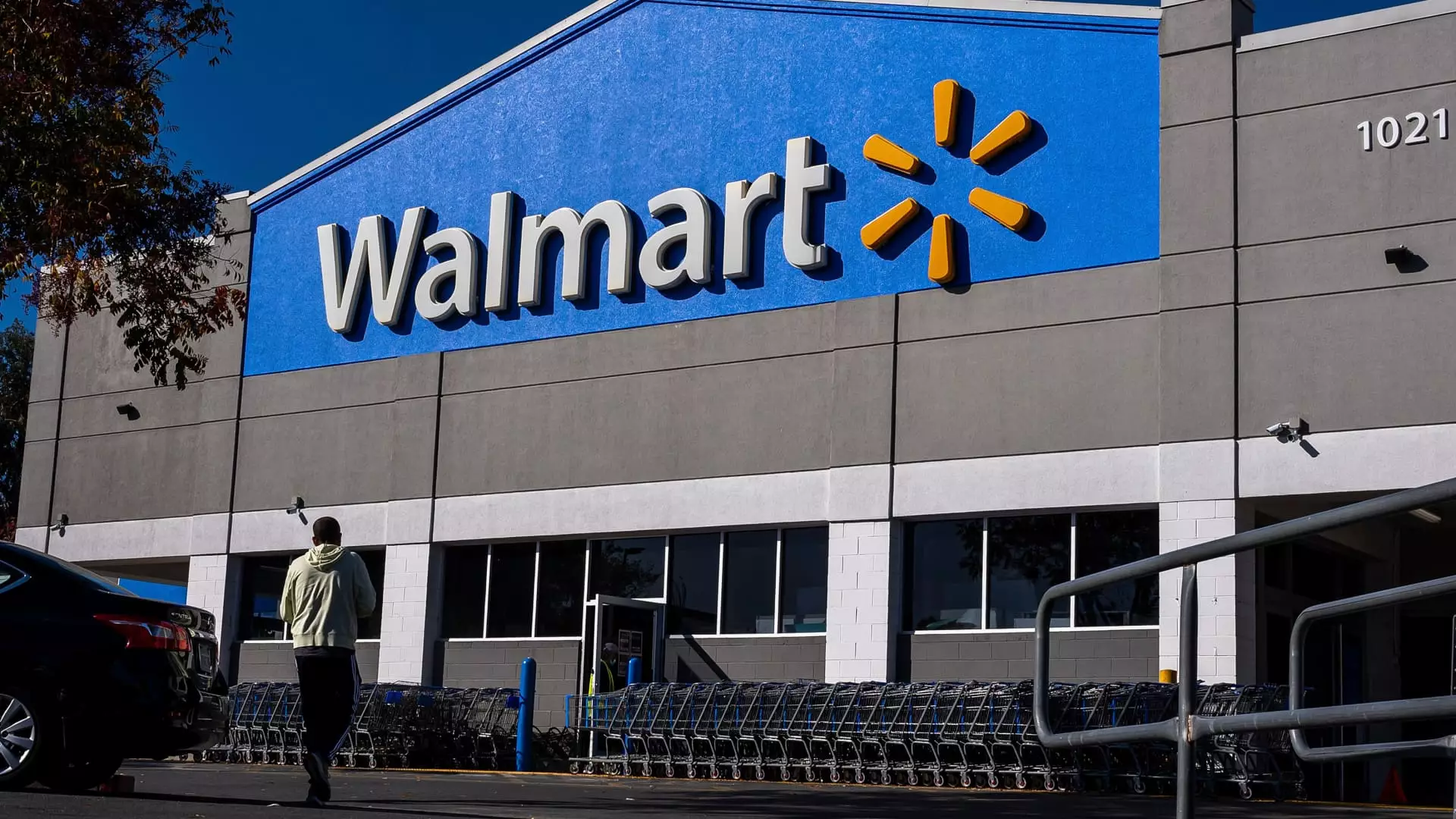In recent discussions regarding the potential economic repercussions of tariffs proposed by the incoming Trump administration, Walmart’s Chief Financial Officer, John David Rainey, expressed a cautious yet realistic view on the looming changes. While the giant retailer is renowned for its strategy of “everyday low prices,” Rainey warned that consumers could see price increases on certain products if the tariffs are enacted. This statement reflects the broader anxiety felt across the retail landscape as businesses prepare for possible financial repercussions stemming from trade policies.
The backdrop to Rainey’s comments is a complex retail environment that has been grappling with various economic pressures. After years of struggling with inflationary challenges, U.S. consumers have recently experienced a moderation in inflation. However, the threat of proposed tariffs reintroduces concerns about rising costs for essential goods. Rainey emphasized that it is still premature to identify which specific items might be affected, yet he underscored a clear reality that echoed across the retail sector: tariffs can lead to higher prices for consumers, undermining the hard-earned gains made in recent years.
The potential blanket tariffs, characterized as a “tax on American families” by National Retail Federation CEO Matthew Shay, present significant implications that extend beyond just consumer costs. The worries voiced by Shay encapsulate fears that inflation will spike and that job losses could ensue as businesses adapt to increased operational costs. This raises urgent discussions about the strategic responsiveness of retailers, especially as they navigate an unpredictable economic landscape.
In anticipation of these developments, retailers are re-evaluating their supply chains. Rainey noted that Walmart is particularly well-positioned as approximately two-thirds of their inventory is domestically produced. This localization strategy aims to cushion the company from the harshest impacts of tariffs, thereby maintaining competitive pricing. Additionally, Walmart has been proactively diversifying its supply sources, seeking to reduce reliance on singular markets, particularly China, which has historically been the focal point for many retailers.
Similar sentiments were echoed by executives from other companies, such as Lowe’s, which identified that around 40% of its goods originate from international sources. CFO Brandon Sink acknowledged that while the potential tariffs would indeed inflate product costs, the company feels adequately prepared to maintain operations in the face of these challenging conditions.
Walmart and other retailers have not faced these tariff challenges without precedent. Rainey reflected on the company’s experiences under the prior administration’s tariffs, indicating that Walmart has grown accustomed to operating within a fluctuating tariff environment. His remarks reveal a resilient strategic mindset: while acknowledging the inflationary pressures that tariffs exert on pricing, there is a strong commitment to collaborate with suppliers to explore solutions aimed at diminishing cost impacts on consumers.
As the specter of tariffs looms, retail leaders are banding together to voice their concerns and assessments of the potential consequences. The collective response reflects an urgency to address the economic realities that could ripple through the industry if these policies are realized. Retailers like E.l.f. Beauty and Footwear maker Steve Madden have also highlighted potential price adjustments, reflecting a growing consensus among various market players about the palpable threats posed by tariff implementation.
The looming tariffs represent a significant challenge for the retail industry. Walmart’s proactive measures and strategies illustrate how large retailers are not merely passive recipients of policy changes but are instead actively engaged in planning and adapting. With varied voices emerging from the sector, it has become increasingly evident that collaboration, innovation, and agility will be crucial for navigating this uncertain terrain. As the nation awaits clarity on the specifics of these proposed tariffs, the retail community stands united in preparing for the challenges ahead, committed to protecting consumers while steering their businesses through turbulent economic waters.

